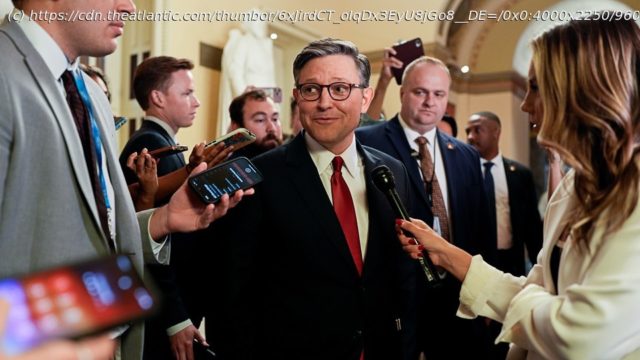But they didn’t want to anger the president.
The so-called moderate Republicans promised they would not slash Medicaid. Conservatives vowed not to explode the national debt. Party leaders insisted that they would not lump a jumble of unrelated policies into a single enormous piece of legislation and rush that bill through Congress before any reasonable person had time to read it.
But President Donald Trump wanted his “big, beautiful bill” enacted in time to sign it with a celebratory flourish on America’s birthday. And so nearly all GOP lawmakers in the House and Senate, setting aside these and many other pledges, principles, and policy demands, did what the president desired.
The legislation that cleared the Senate and House this week is many things, and it does fulfill some core promises that Trump made as a candidate: The measure makes permanent his first-term tax cuts (and reduces some taxes even further), injects billions in new spending for immigration enforcement and national defense, and rolls back some of the incentives for clean energy enacted by the predecessor whom Trump loathes, Joe Biden.
Ultimately, however, its passage through narrow Republican majorities is the most consequential demonstration yet of how tightly Trump controls his party. To fulfill the president’s wishes and meet his arbitrary deadline, some Republicans reneged on pledges to oppose deep social-safety-net cuts, while others abandoned efforts to preserve tax credits that benefited their states and districts. Spending hawks who vowed to uphold some semblance of fiscal responsibility caved rather than stand firm for deeper cuts.
Democrats made all of these arguments many times over, to little avail. But so did one surprising Republican, Senator Thom Tillis of North Carolina, who opposed the bill and then immediately announced his retirement rather than face the electoral ramifications of infuriating Trump. Tillis has developed a reputation as a bipartisan dealmaker during his decade in the Senate. But he is not usually a renegade. Senators Susan Collins of Maine and Lisa Murkowski of Alaska vote more frequently with Democrats than he does. Others in the party had drawn brighter red lines during the debate over Trump’s bill.






